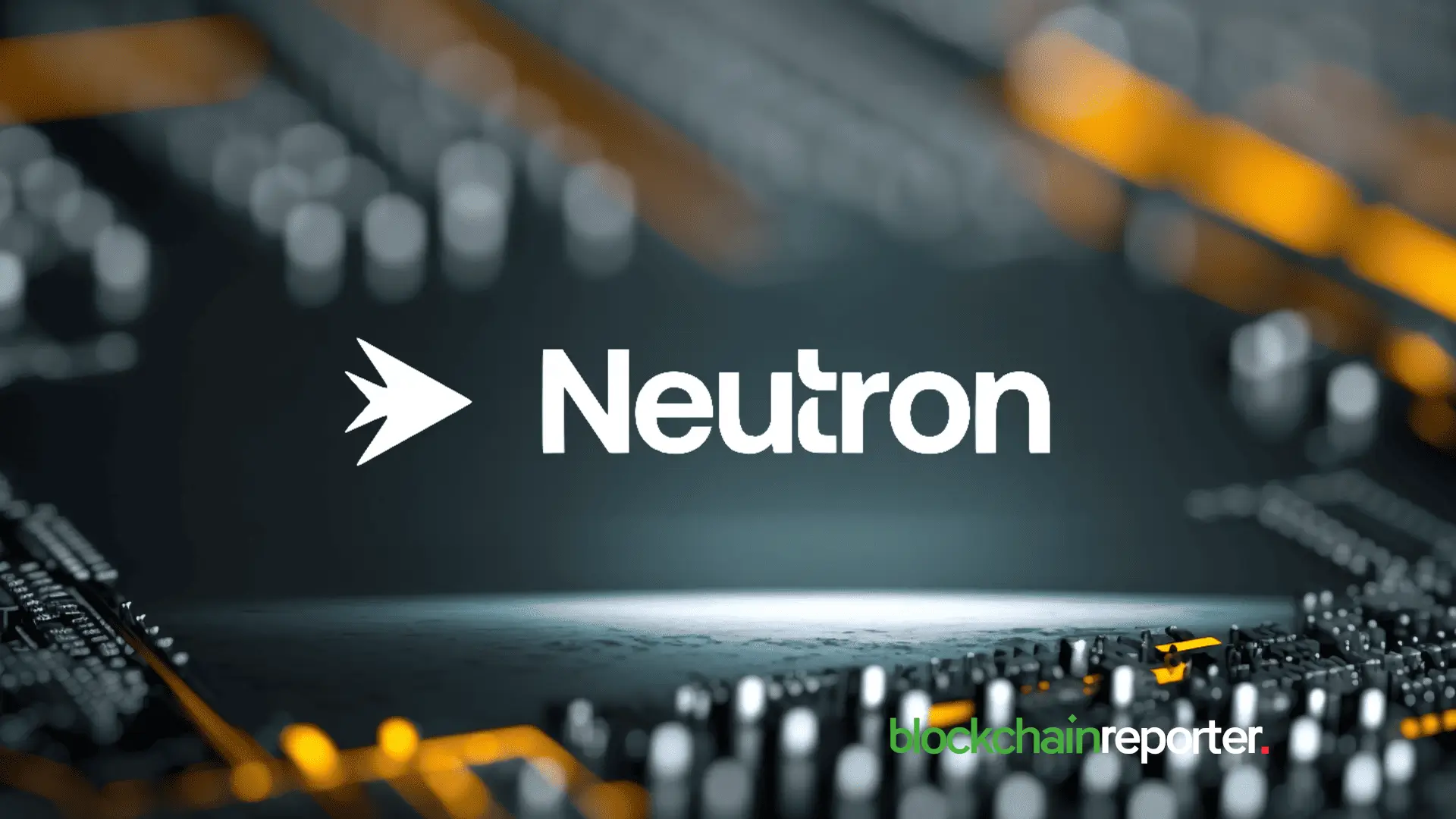Hadron Labs Launches Bitcoin Summer on Neutron, Offering 5–10% BTC Yield

Hadron Labs, the core team behind the Neutron blockchain, today launched Bitcoin Summer, a BTC-focused yield campaign that brings established DeFi yield strategies, including leveraged looping, to Bitcoin holders at scale.
Starting now, BTC holders can deposit WBTC, eBTC, solvBTC, uniBTC and USDC into a selection of Bitcoin Summer vaults tailored by yield, risk and asset preference. Those vaults feed lending markets and DEX liquidity that, in turn, enable leveraged BTC looping, a mainstay strategy in DeFi that until now has been largely inaccessible to BTC holders en masse.
At the heart of the campaign is maxBTC, an asset that tokenizes real BTC yield generated from both on- and off-chain strategies. Depositors into maxBTC can expect a base yield in the range of roughly 5–10% in BTC, and those who choose to take on leverage may loop their position up to 10x via borrowing.
As looping activity grows, vault depositors stand to capture additional upside from swap fees and lending income paid by loopers, creating a feedback loop of higher yields for liquidity providers.
“Lombard has consistently enabled people to connect their Bitcoin to DeFi, proven by an 82% LBTC utilization rate. We’re excited to bring LBTC to the Neutron DeFi ecosystem and leverage its unique DeFi components to unlock real yield for LBTC holders,” said Jacob Phillips, Co-founder of Lombard Finance.
Powered by Neutron
Neutron’s selling point is its bespoke infrastructure designed specifically to reduce risks that have dogged on-chain BTC liquidity provision. Bitcoin Summer vaults run on Neutron’s stack, which includes:
- A high-frequency oracle that pulls the freshest prices so Supervaults can provide liquidity at the best available rates.
- A cron module that guarantees top-of-block execution, preventing rebalancing transactions from being frontran and protecting LPs from adverse outcomes.
- A native, fully on-chain orderbook to support efficient and transparent trading.
According to the campaign materials, these elements together mitigate adverse selection risk for BTC liquidity providers and deliver a more sustainable, “real yield” model for LPs compared with many existing on-chain options.
Neutron is a public proof-of-stake blockchain built to let BTC holders earn a sustainable yield through an expanding set of products and services. As demand for BTC yield on the network rises, the ecosystem design routes value back to NTRN stakers via transaction fees and through mechanisms that reduce circulating NTRN supply.
Hadron Labs, founded in 2022, is the core development team powering Neutron and related projects like Drop, Duality and Bull vs. Bear. The team bills itself as crypto-native, with members who have worked at Lido, P2P, Consensys, Uniswap, Balancer, Trader Joe and Delv.
Bitcoin Summer marks a noteworthy push to bridge Bitcoin liquidity into DeFi’s yield machinery. For BTC holders who have watched such strategies flourish on Ethereum and other chains, Neutron’s campaign offers a first-class entry point to on-chain BTC yield with a toolkit designed to reduce some of the traditional frictions and risks.
You May Also Like

Husky Inu (HINU) Completes Move To $0.00020688

Trump Drops $400-Billion Dividend Bombshell For Americans — Crypto Market Erupts

Michigan Pushes Crypto Reserve Bill Allowing 10% State Investment in Digital Assets
Highlights: Michigan advances bill to allow cryptocurrency holdings in official state financial reserves. The proposal includes strict crypto security rules like encryption, audits, and multi-party approvals. Michigan joins the growing list of states exploring Bitcoin reserves for budget diversification. Michigan is moving forward with plans to hold cryptocurrency as part of its state funds. House Bill 4087, which would let the state invest in certain cryptocurrencies under set rules, had its second reading on Thursday and was sent to the Committee on Government Operations. If it becomes law, Michigan could start using digital assets more widely in its financial plans. Michigan Moves Toward Crypto Reserve with Strict Security Rules Republican lawmakers Bryan Posthumus and Ron Robinson put forward the bill in February. The bill says crypto must be stored in one of three ways: with a secure storage service, with a qualified custodian such as a bank or trust company, or through exchange-traded products from registered investment firms. The bill allows Michigan to set up a Bitcoin reserve and invest up to 10% of its countercyclical budget and economic stabilization fund in crypto. Hello @bitcoin_laws, HB 4087 is not a Bitcoin Reserve Bill. The word bitcoin is not mentioned anywhere in the bill. This is a cryptocurrency bill. The Michigan Bitcoin Trade Council does not support HB 4087. This is a bill that enables the state of Michigan to invest in ANY… — Michigan Bitcoin Trade Council (@MichBTCtc) September 18, 2025 The proposal sets strict security rules, including government-only access to private keys, full end-to-end encryption, no phone-based access, secure data centers in multiple locations, multi-party approval for transactions, and routine audits. It doesn’t specify which digital assets qualify for strategic reserves, only defining the criterion. The bill states: “Digital currency in which encryption techniques are used to regulate the generation of units of currency and verify the transfer of funds, and that operates independently of a central bank.” Supporters argue that Bitcoin can safeguard Michigan’s funds, reduce risks, and improve returns due to its fixed supply and rising adoption. They believe it strengthens financial security. Critics warn of volatility and unclear regulations, saying Bitcoin’s price swings could threaten stability and harm the state’s long-term financial health. Only Three States Have Passed Laws Several U.S. states are moving toward Bitcoin reserve plans, with Michigan joining more than 20 others drafting similar legislation. This wave highlights the rising attention on digital assets and their role in diversifying state portfolios. New Hampshire, Arizona, and Texas have already passed their own Bitcoin reserve laws. New Hampshire led with HB 302, allowing its treasurer to invest in digital assets with a market cap above $500 billion. Currently, only Bitcoin qualifies. Arizona’s Bill 2749 focuses on holding unclaimed assets and staking rewards in the state treasury rather than buying crypto directly. Texas’s SB 21 calls for a state-funded Strategic Bitcoin Reserve. Similar bills have been rejected in Montana, North Dakota, South Dakota, Wyoming, and Pennsylvania, while 17 other states still have proposals under review. In Michigan, however, the proposal has faced pushback. The Michigan Bitcoin Trade Council opposes the bill, saying it lacks a minimum market size requirement. Without this, the state could end up purchasing cryptocurrencies other than Bitcoin. The group warns this would be risky, as they view other digital assets as more centralized and less secure than Bitcoin. eToro Platform Best Crypto Exchange Over 90 top cryptos to trade Regulated by top-tier entities User-friendly trading app 30+ million users 9.9 Visit eToro eToro is a multi-asset investment platform. The value of your investments may go up or down. Your capital is at risk. Don’t invest unless you’re prepared to lose all the money you invest. This is a high-risk investment, and you should not expect to be protected if something goes wrong.